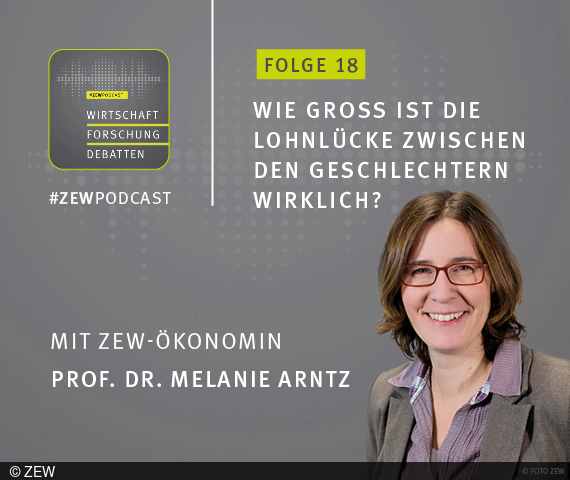Equal Pay Day 2022 – Fair Payment in the Digital Labour Market
#ZEWPodcastZEW Economist Professor Melanie Arntz in the #ZEWPodcast
In Germany, 7 March 2022 symbolically marks the wage gap between women and men. With a wage gap of 18 per cent, women statistically work 66 days “for free”. In the 18th episode of the #ZEWPodcast, ZEW economist Professor Melanie Arntz shed light on various factors that cause the gender pay gap. She also talks about the EU Action Plan for Gender Equality, parental leave allowance and the challenges of digitalisation.
In the podcast, Arntz emphasises that different career preferences of women and men are only one of many causes for the persistent wage gap. Other factors are part-time work, leaves of absence to raise children, caring for relatives, as well as the phenomenon that women statistically work in lower-paying companies. In recent years, women’s labour market participation has increased steadily, yet persistent gender-specific differences in unpaid work remains a key issue. Parental leave allowance might have a leverage effect here. “In a future reform of parental leave allowance I would like to see an extension of the fathers’ months in order to further advance social change,” says Arntz.
Equal Pay 4.0
This year’s Equal Pay Day focuses on the opportunities and challenges of digitalisation. “Digitalisation could contribute to the wage gap widening even further,” emphasises the economist with a view to the future of the labour market. De facto, it is currently the case that women have generally acquired less digital skills then men. It is therefore important to take the gender perspective into account in programmes designed to help develop marketable skills, including digital skills, to ensure that women have easy access from an early age and throughout their careers, says Arntz.

